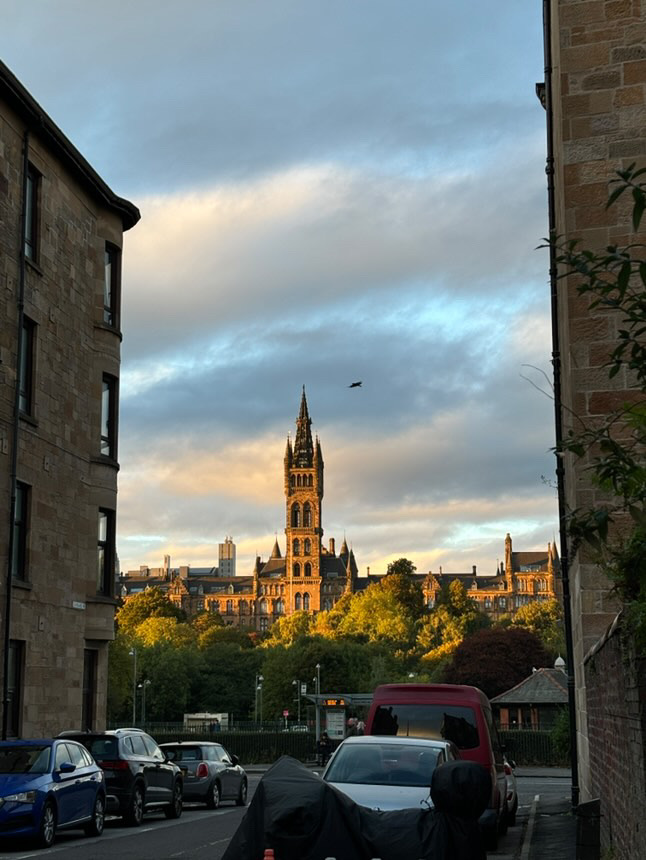Piranas Jeyanathan, a history and politics alumnus of Northeastern University London, knew that diversity, equity and inclusion, or DEI, policies in the United States were changing. What he didn’t expect was that his university in the United Kingdom would follow suit.
The title of the university’s DEI website was changed to “Belonging at Northeastern London” as recently as March 16, according to Internet Archive results. And in a March 19 newsletter sent to students and faculty, NU London referred to its annual “DEI Report” as the “Belonging Report.” Yet, the term “DEI” continued to appear on the Northeastern London website in subheadings about data on staff and students and the campus’ official DEI policy until July. Now, those subheadings use “Belonging” instead of “DEI,” although the “Belonging Data for Staff” subheading links to a page entitled, “DEI Data Staff.”
“It was just a leadership decision without any consultation, which obviously students are frustrated about,” Jeyanathan said of the change to “Belonging” language.
The language change comes after Northeastern scrubbed DEI language off its main website around Jan. 24, changing the Office of Diversity, Equity and Inclusion to the Office of Belonging. The move followed a Jan. 21 executive order by President Donald Trump that instructed federal officials to investigate “illegal” DEI programs at institutions with endowments greater than $1 billion.
“Even though international campuses of federally funded institutions are located outside the jurisdiction, the risk exists that enforcement authorities like the Department of Education consider the [executive order] applicable to international operations and will expect compliance,” said Kevin Plante, an attorney and founder of General Counsel Law. “This is particularly true if the school uses federal funds to operate the international campuses. And I think universities should not jeopardize their federal funding by assuming they can continue existing DEI programs outside the U.S.”
In an email to The Huntington News, Vice President for Communications Renata Nyul wrote that all “relevant” offices and staff titles at NU London were changed to be consistent with the existing policy on U.S. campuses.
“While there may be a lag, relevant websites will be updated to reflect the changes,” Nyul wrote in a July 7 email.
In a March 19 update to Northeastern’s “Navigating a New Political Landscape” FAQ page, the university wrote that, in relation to DEI, it is taking a “reimagined approach” that “centers on embracing the experiences of individuals across the global university system to maximize impact at the institutional level.” Additionally, in an interview with The News, Senior Vice President for External Affairs Mike Armini explained that the university began reevaluating the purpose of its DEI policies and office over a year ago.
Now, it’s unclear how the Trump administration’s executive order applies to Northeastern’s London campus.
Whether the campus is required to follow Trump’s executive order may depend on whether it received U.S. federal funds and the contract NU London has with the U.S. campus. But local policies matter, too: Plante said that one of the most significant U.K. laws NU London must follow is the Equality Act, which legally protects people from discrimination.
Executive orders allow the president to sign directives without moving them through Congress and the Senate. Although binding, these orders function as a directive for federal agencies, not laws, and can be rescinded by subsequent administrations.
But currently, Plante explained, the lack of specificity in the Jan. 21 executive order makes it difficult to determine NU London’s responsibility to comply.
“If it was legislation from Congress, it would be very detailed. It would be very long. This executive order is [six] pages, depending on how you print it out,” Plante said. “It’s going to give you specific laws and requirements and obligations that you have to comply with. This [executive order] does not have the same specificity that legislation passed by Congress has.”
The London-based university faces unique challenges as an international institution accredited in both the U.K. and the U.S. The campus allows students to obtain a “double degree,” which grants students an undergraduate degree from both countries in four years.
Plante said that both U.K. and U.S. laws could potentially apply to NU London because of its dual accreditation. However, given the campus’s location, any legal proceedings in the U.K. would be governed by U.K. law.
Since March, Northeastern’s quiet rewording of its diversity policies has sparked confusion and anger from some students. After the university used a promotional photo of Jeyanathan in its new “Belonging Report,” he requested to have the image removed so he was not “associated” with the change.
Some students did not understand the university’s decision.
“Obviously, for U.K. students, it’s like, why are we calling [DEI] a different name? Why are we following what Boston is doing?” Jeyanathan said.
Tatyana Itaye, a third-year politics, philosophy, and economics major at NU London, said her identity qualifies her for the DEI initiatives that the university has implemented. She is worried that the “reimagined approach” signals that the university is no longer putting an “active effort” into the cause.
“No one really knew it was being changed,” Itaye said, adding that the move is a “cop out” by the university.
According to a March 19 NU London campus newsletter, the university’s “Belonging Team” made time for students to “discuss anything in relation to belonging or diversity, equity and inclusion at NU London” during the week of April 28.
After the announcement, Jeyanathan pushed for the creation of a student referendum by NU London’s student government, or Student Union, to express that some students were against the change. In April, the Student Union sent out a request for signatures on the referendum in its weekly newsletter.
“The purpose of this form is to call on the university to continue using the title ‘Diversity, Equity and Inclusion’ (DEI) in all reports, communications, websites and committees while moving away from the term ‘belonging,’ which is currently being used in some instances, such as on the NU London website,” the referendum reads.
Jeyanathan knows it might not change the university’s policy but believes it’s a necessary step to resist.
“I think it’s a clear stance that students here do care about the change and are upset with the change,” he said. The referendum wasn’t passed before the end of the 2024-25 school year and his graduation.
While discontent is brewing among many students, the university’s DEI changes have garnered a more subdued reaction from faculty at NU London. Celal Özkızan, an assistant professor in international relations and politics at NU London, believes the change won’t make a difference in practice.
“It seems like it is a practical change, rather than the change in the ways we do things,” Özkızan said. “It’s just a name change to just get around what Trump is trying to do in the U.S., which might have an impact on Northeastern Boston, which then might have an impact on Northeastern London.”
Deputy campus editor Madison Evangelist contributed reporting.











